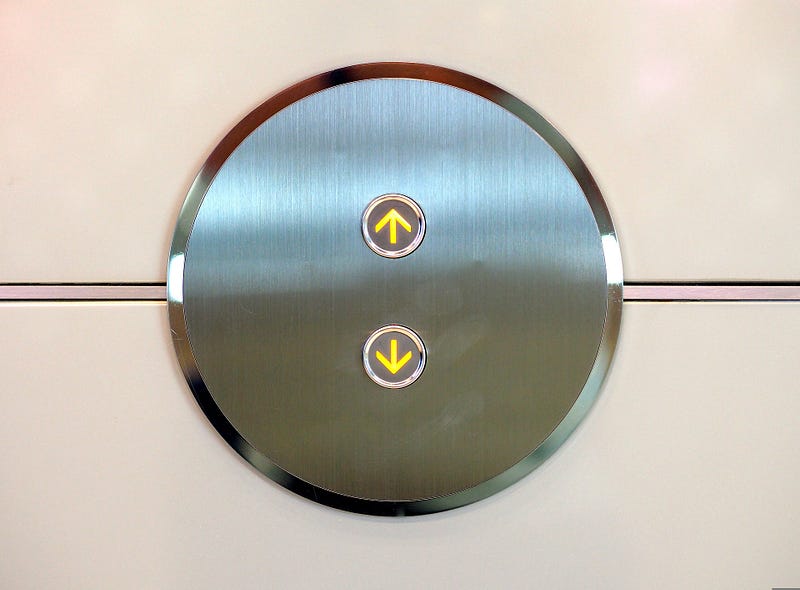Elevators, Analysis, and the Pursuit of Knowledge: A Reflection
Written on
Chapter 1: The Elevator Observation
After completing my daily workout, I followed my usual path to the elevator, ready to descend to the ground floor. As I pressed the down button, an intriguing thought resurfaced in my mind.
I had previously devised a humorous theory about people's interactions with elevators. For instance, if an elevator is situated on the 10th floor and an individual on the 5th floor wants to go up, they press the down button to "call" the elevator to their level. My theory proposed that “individuals who engage in this behavior tend to have a controlling personality.”
This theory emerged from mere observation, leading to a somewhat whimsical conclusion in the realm of psychology. However, while I waited for the elevator, I realized a significant flaw in my reasoning. My initial theory leaped to an unsupported conclusion, while a more logical and grounded explanation was evident.
I had neglected to consider the actual process:
- Individuals assess the elevator's current floor.
- They calculate the relationship between their floor and the elevator's.
- They then select the appropriate direction to summon it.
With this understanding, a revised theory could be articulated: “People who request the elevator to their floor tend to be analytical and methodical.”
Is this new theory more robust than the first?
As I exited the elevator and walked toward the parking area, I recalled an engaging section from Karl Popper's intellectual autobiography, “Unended Quest.” Popper explores the generation of theories, the scientific method, and related concepts. He articulates a clear distinction in his theory of learning, outlining a cycle that begins with identifying a practical problem, formulating a tentative theory, eliminating errors, and ultimately encountering a new practical problem. This cyclical process can commence at any point and underscores the inherent incompleteness of knowledge.
In essence, it can be summarized as: one starts with a problem, tries to resolve it, may or may not succeed, and consequently generates a visible or soon-to-be-visible new problem.
In his work, Popper illustrates this progression as follows:
P? ? TT? ? EE? ? P?
This schema not only applies to scientific inquiry but is fundamental to the nature of knowledge itself. My musing aligns with this structure. For instance:
P?: The unusual behavior of individuals summoning elevators instead of simply selecting their desired floor—what's the rationale?
TT?: The initial theory that such behavior reflects a controlling disposition.
EE?: There exists a logical leap between summoning an elevator and exhibiting controlling behavior. Individuals undertake analytical mental steps before making a request, leading to a clearer conclusion. Thus, I revise TT1 to: People who request the elevator to their floor are likely to be analytical thinkers.
P?: To be explored on my next elevator ride.
Consequently, the outcome is a refined theory with the recognition that it does not fully address its identified issue and may give rise to new questions. This mindset is crucial for the advancement of any aspect of human endeavor—whether biological, behavioral, intellectual, or otherwise. While the allure of completeness is immensely appealing, it's essential to acknowledge that true completeness is an attribute of the infinite and the divine.
Section 1.1: The Nature of Theoretical Development
The formation of theories is a critical aspect of intellectual inquiry. As we develop ideas, we must continuously evaluate and refine our understanding.
Subsection 1.1.1: How Theories Emerge

Section 1.2: The Cycle of Knowledge
Chapter 2: Theoretical Implications
This video delves into the history of the Rose Bowl and its implications for college football's bowl season, offering insights into the evolution of sport and its impact on culture.